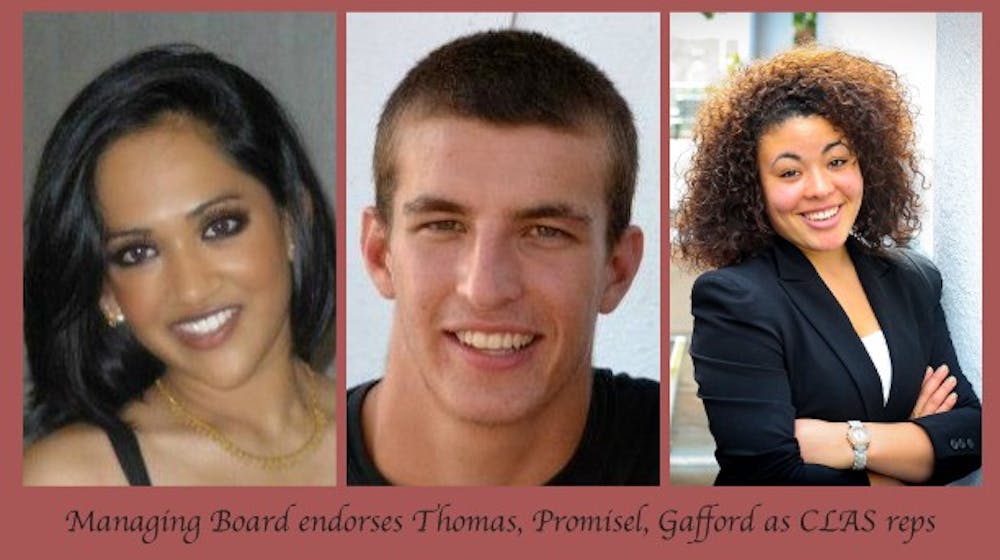To the best of our knowledge, Student Council’s representative body has never gone on strike. But looking at its past attendance records, it may as well have. In the 2011-2012 Council term, 15 representatives—in violation of Council’s attendance requirements—accumulated more than one unexcused absence during the fall semester. The representatives with the two lowest attendance rates showed up to required meetings 36.1 percent and 44.4 percent of the time. Poor attendance has, in the past, often left Council unable to achieve quorum, the two-thirds minimum of votes needed for Council members to do more with their meetings than call roll, adjourn or otherwise twiddle their thumbs in the Newcomb South Meeting Room.
Defiant absences, from class or otherwise, can be admirable: we at The Cavalier Daily appreciate a rebellious streak. But these representatives were not rebels, and they had no causes—or nearly none, judging from the paucity of successful legislation introduced through the representative body in recent years. The trend is clear: for Council representatives, attendance has not been a strong suit.
This trend may be hard to buck. Of the 13 students running to be Council representatives for the College, nine signed up for endorsement interviews. Of the nine who managed to sign up, two missed without notifying us, and one came late. We had thought the inability of representatives to attend meetings was folklore. This year’s crop of candidates proved it fact. Whether because of a constitutional aversion to meetings or a lack of interest, almost half of the College representative hopefuls were, to us, empty chairs. At least they didn’t try to send proxies.
The candidates we endorse—third-year Michael Promisel and second-years Sidney Gafford and Mariam Thomas—all took the initial step of showing up to their interviews.
Promisel has served two terms, minus a semester abroad, on Council’s representative body. He’s currently working on reforming Council’s bylaws. The bylaws, Promisel said, are so neglected that even the document’s formatting is disordered—a piece of dire symbolism pointing to the obsolescence of Council’s oft-ignored internal rules. Promisel is pushing to reform the representative body so that it meets every other week in four separate committees rather than as a single mass.
Promisel has served two terms on Council’s Environmental Sustainability Committee, but when it comes to Council he’s far from green. His experience and aptitude make him the strongest candidate we interviewed.
Gafford offered concrete ideas for how Council could forge closer ties with other student communities. She plans to attend other organizations’ meetings and events to hear what students want from Council. She suggested making it a requirement for representative body members to attend a certain number of student events to build relationships with other groups and bring a wider swath of student input to Council.
Gafford hopes to strengthen the ties between Council and the Black Student Alliance. She said she senses a separation between Council and the African-American community, and she hopes to bridge this divide through her work. Gafford’s insight and evident sense of responsibility make her an excellent candidate.
Thomas focused on women’s safety and diversity in her interview. She said she plans to seek federal funding for student bystander intervention training. Thomas expressed skepticism at the idea that a lack of data could be a justifiable reason for postponing a Council vote. She committed to creating more informal surveys to email to the student body to see where her constituents stand on various issues.
Eight College representatives will be elected next week. We’re vouching for three. Vote Promisel, Gafford and Thomas.







